Ensure shift coverage and skill compliance for frontline teams
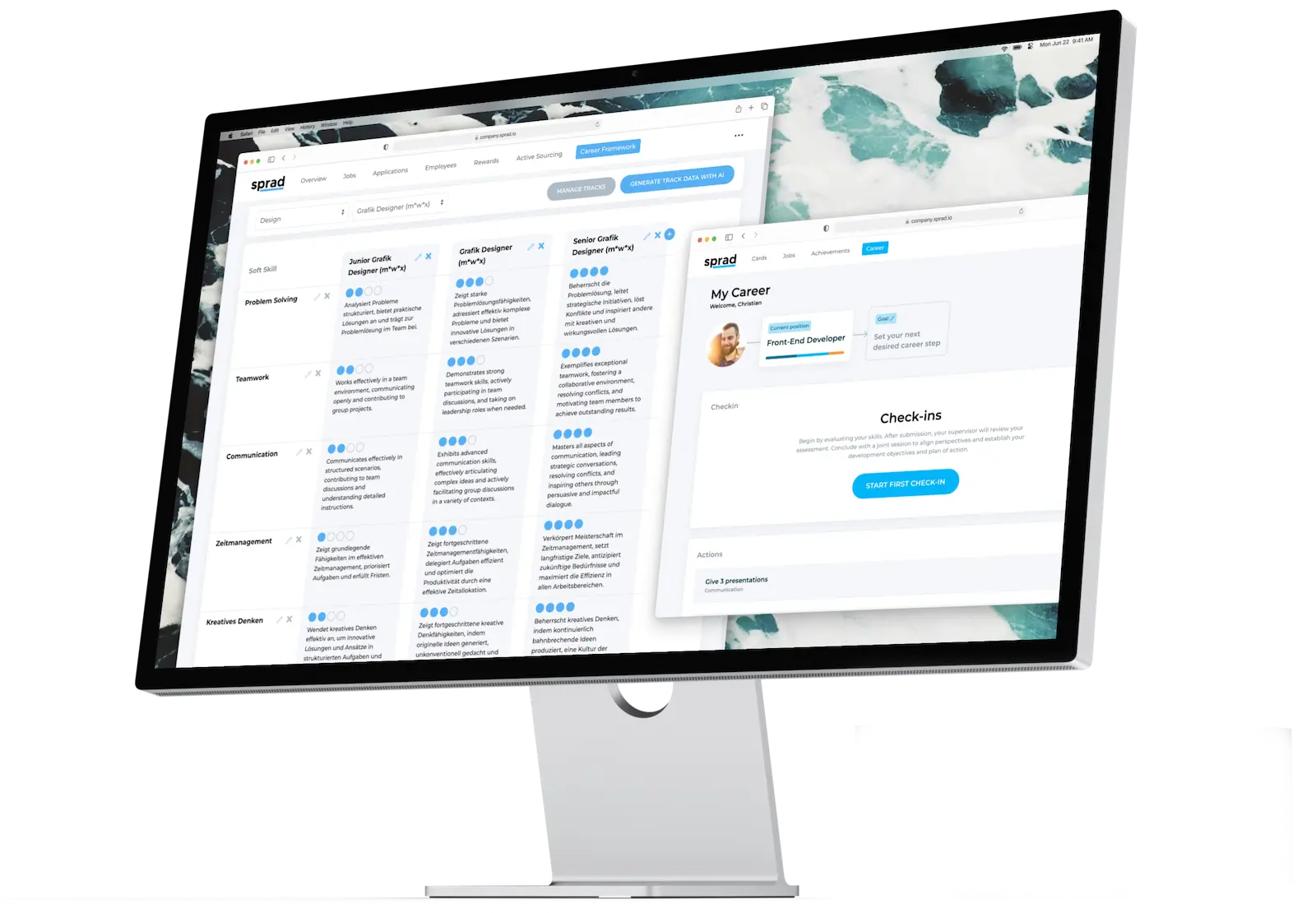
















Keep frontline skills current and shift-ready
Sprad ensures every shift is covered by qualified staff and keeps compliance simple for healthcare teams.
Mobile skill access. Non-desk staff update and confirm skills on any device.
Real-time coverage view. Managers see role readiness instantly across all units.
Privacy-compliant records. All data is secured and meets strict healthcare standards.
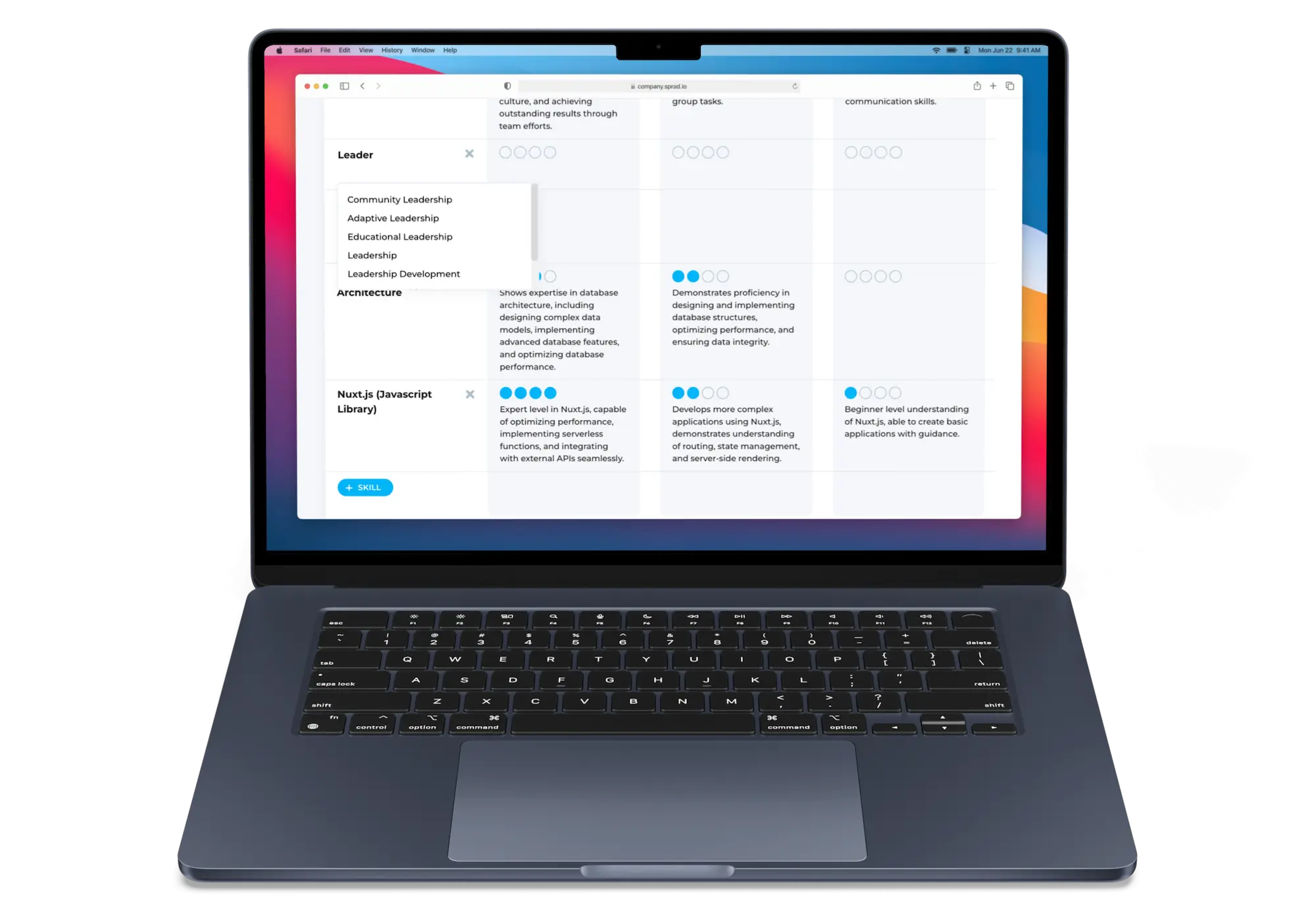










Verified coverage
Healthcare managers see real-time skill status, ensuring every shift is staffed by qualified team members and reducing coverage gaps across units.
Faster redeployment
Automated reminders and instant dashboards help redeploy staff quickly when demand changes, supporting continuity of care during busy periods.
Lower admin effort
Mobile-first workflows reduce manual tracking for non-desk workers, cutting administrative workload and supporting compliance with strict healthcare standards.
Skill coverage and compliance for every healthcare shift
Sprad connects systems, automates skill tracking, and delivers real-time coverage for frontline teams in healthcare organizations.
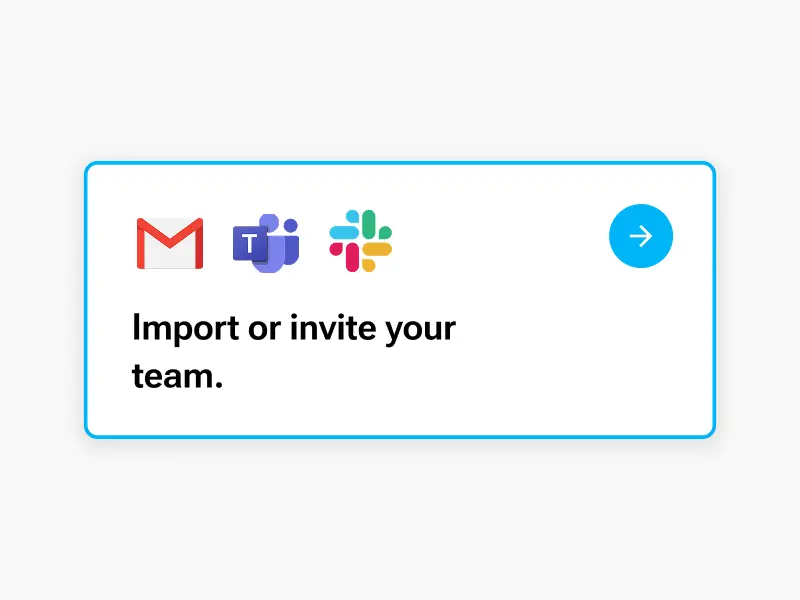
Connect mobile channels and HR systems for shift teams
Mobile access. Non-desk staff update skills and confirm readiness using secure mobile links or SMS. This ensures all team members can participate, even without inbox access.
System integration. Sprad links with HR platforms and scheduling tools. Managers see a unified view of role requirements and staff capabilities across all units.
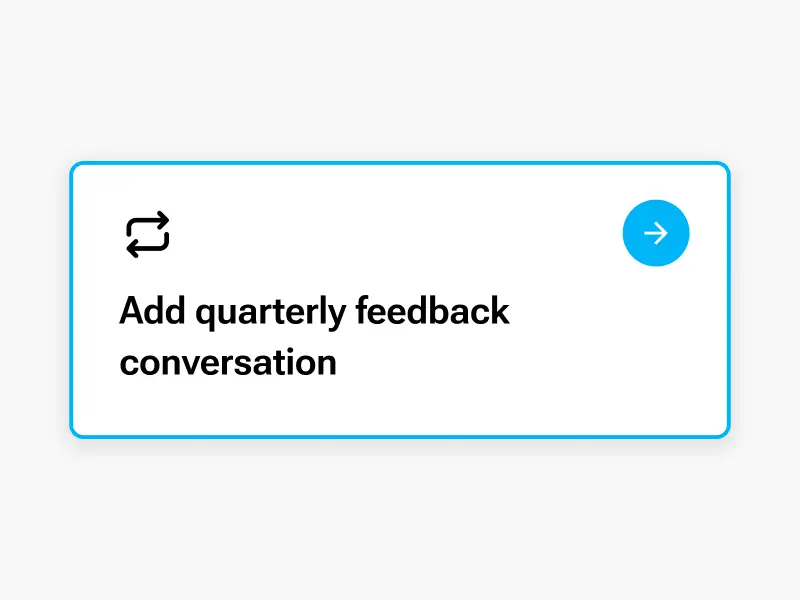
Automate skill workflows and shift-readiness reviews
Workflow setup. Assign required skills to each role and automate reminders for expiring certifications. Shift leads receive prompts to confirm team readiness before each rotation.
Guided actions. The platform delivers targeted learning modules and checklists directly to staff. This supports compliance with training standards during busy schedules.
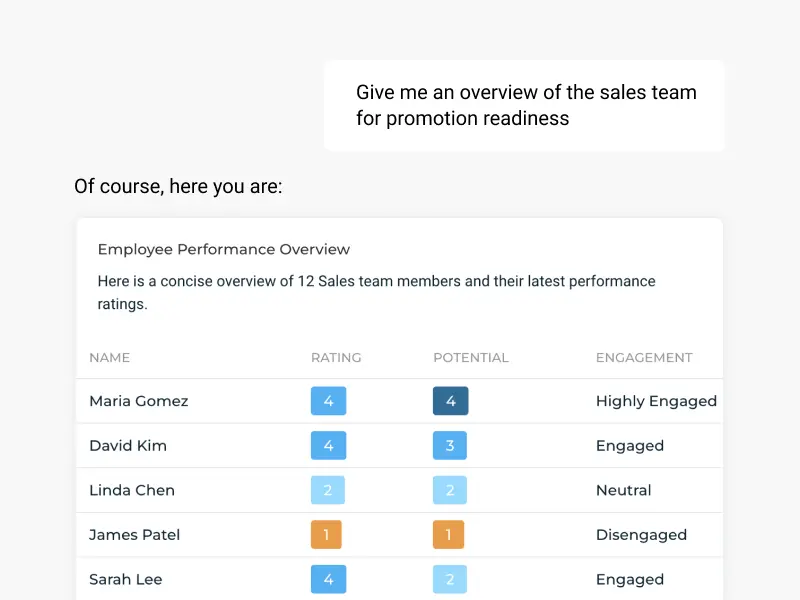
Analyse skill data and generate compliance reports
Real-time analytics. Managers access up-to-date dashboards showing skill coverage by unit. Gaps are flagged instantly, supporting rapid redeployment decisions when demand changes.
Reporting tools. Sprad provides privacy-compliant records for audits. Reports highlight completed training, pending renewals, and overall workforce readiness at a glance.
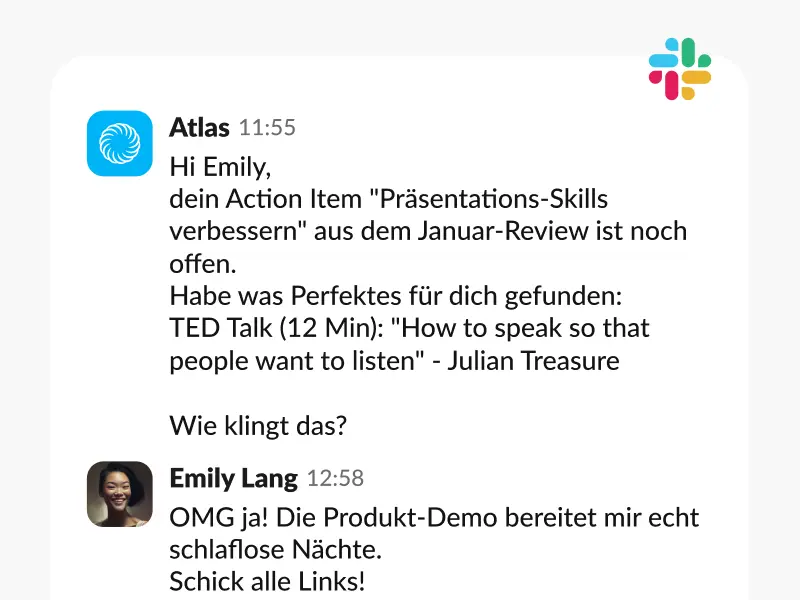
Enable career coaching and targeted development for staff
Personalized coaching. Employees receive clear feedback on strengths and growth areas based on verified skills. Suggested next steps help guide ongoing development in clinical roles.
Mentor support. The platform connects frontline teams with mentors or learning resources. This fosters engagement, supports retention, and builds long-term capability in healthcare settings.
How does Skill Management Software for Healthcare Organizations teams scale?
It scales by mapping roles to skills, automating gap detection, and guiding training at team and unit level. Sprad's platform standardizes job profiles, keeps competencies current, and routes learning to the right channel. Managers see reliable coverage per shift and can redeploy staff based on verified capabilities.
Under the hood, the platform maintains skill inventories tied to each role. Lightweight workflows assign, confirm, and expire competencies with clear time stamps. Leaders review role readiness in one screen, while people analytics highlights where coaching or cross-training will improve care continuity.
- Role mapping accuracy: reliable coverage decisions across units.
- Skill verification compliance: consistent care standards during rotation.
- Nudge delivery uptake: higher training completion across channels.
Sprad adds proactive prompts, privacy-compliant tracking, and enterprise-ready integrations. Setup is rapid, then the platform adapts to your roles and learning sources. The result is consistent skills, faster decisions, and transparent processes.
All-in-One Talent OS
Provide employees and managers with a single hub for all career-related needs: referrals, performance, engagement, development, and coaching.












Your people are your business
Ensure both are successful - with Sprad.
Why adopt Skill Management Software for Healthcare Organizations performance reviews?
Skill Management Software for Healthcare Organizations aligns roles, competencies, and training in one tool. In this industry, the tool helps HR leaders move from reactive processes to clear, data-driven improvements. Sprad focuses on outcomes first, then activates guided workflows that make skill growth visible and actionable.
What outcomes improve with role-based skills?
Role profiles linked to competencies give managers a current view of who is ready for key tasks. Clear matrices reduce handoffs and create shorter cycle time when shifts change. Teams face fewer blind spots because evidence of capability sits next to job requirements. Leaders capture more specific coaching notes because the structure prompts precise observations.
How does it connect to daily workflows?
Sprad routes in-channel reviews and micro-learnings through Microsoft Teams, WhatsApp, or SMS with privacy-compliant delivery. For shift teams, secure mobile links keep access simple and privacy-compliant. Managers capture notes during one-to-one meetings, and the tool turns them into updated skill status with suggested next steps. Employees receive simple, contextual prompts rather than generic notifications, which supports higher completion rates.
- Competency visibility: fewer blind spots across units.
- Development plans: clear ownership of next steps.
- Role readiness: shorter cycle time for redeployment.
A clinical coordinator starts morning handover by opening Sprad on a tablet. They select the ward, see skill coverage by role, and tap a couple of names to request quick refresh modules. The tool sends a guided agenda to each person, prompts short confirmations through Teams or SMS, and auto-updates role readiness. After rounds, the coordinator logs a pair of coaching notes; the tool proposes targeted learning and a follow-up check-in. Redeployment decisions take minutes, not hours, and the shift lead starts with confidence. If demand spikes, the coordinator can reassign tasks right from the same view.
Traditional systems rely on email-only updates, spreadsheets, or annual forms. They miss non-desk staff during busy shifts, lose context between tools, and delay decisions when information is scattered. Certifications lapse unnoticed, supervisors repeat status checks, and managers cannot compare readiness across units. Without a shared structure for evidence, training efforts drift from actual role needs. The result is inconsistent decisions, longer backfills, and limited visibility into real capability. Workflows fragment further when tools do not share definitions or status.
Why is data quality trustworthy?
Capabilities are verified through manager signoff, peer evidence, or completion of learning with a time-stamped audit trail. Optional AI assistance suggests gaps and relevant resources without overriding human judgment. The tool applies privacy-compliant permissions, SSO, and role-based access so only the right people see sensitive details.
What enables scale across complex organizations?
Sprad connects job architectures, assessments, and learning libraries so skill language stays consistent from unit to enterprise. Centralized models roll up to corporate reporting, support workforce engagement, and inform succession planning. APIs and native connectors link to HR suites and messaging channels, while governance templates keep practices consistent across sites.
Together, these capabilities provide a stable, skills-first foundation for operations and talent decisions.
FAQs
Beispiel Antwort
Beispiel Antwort

